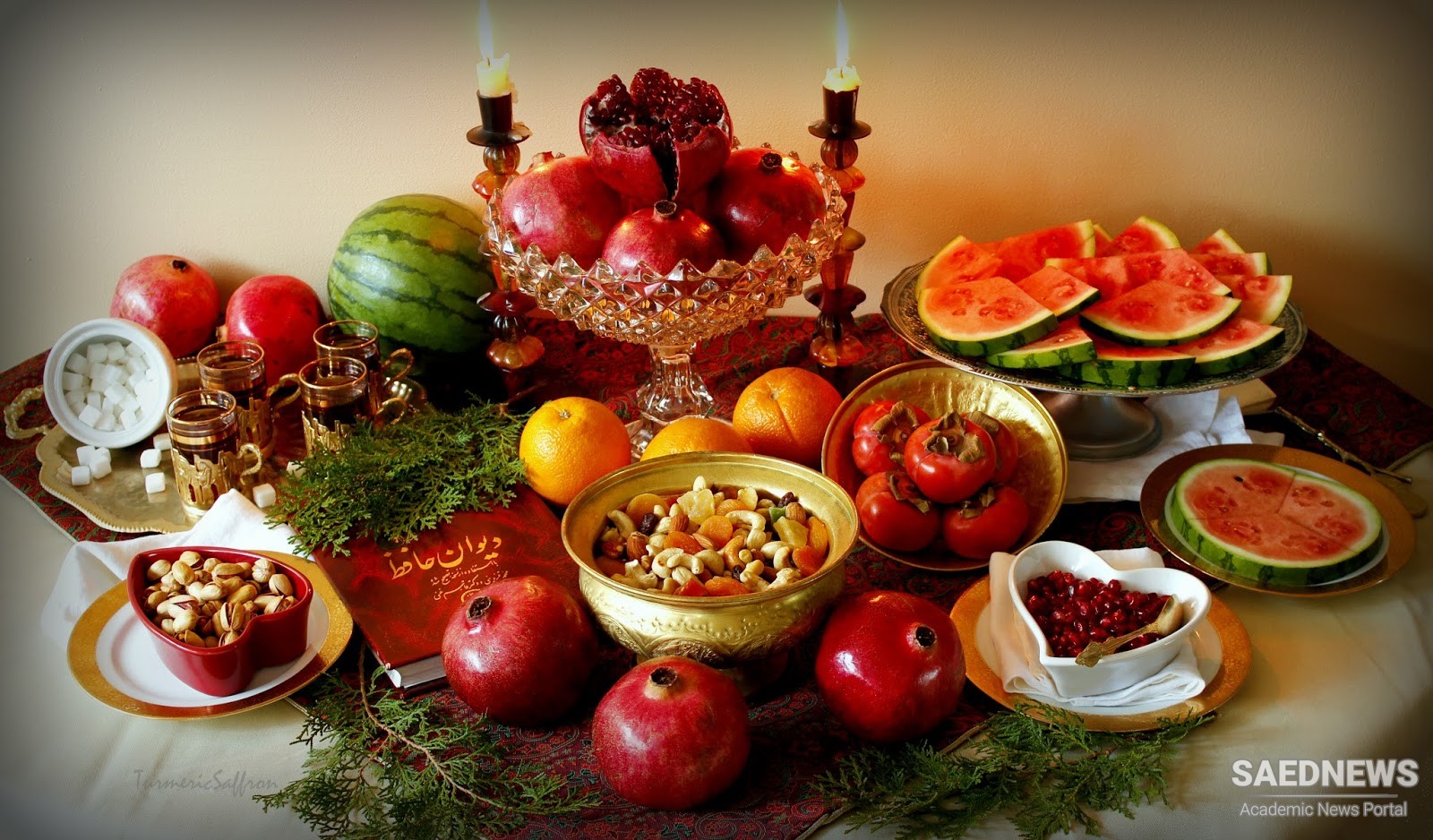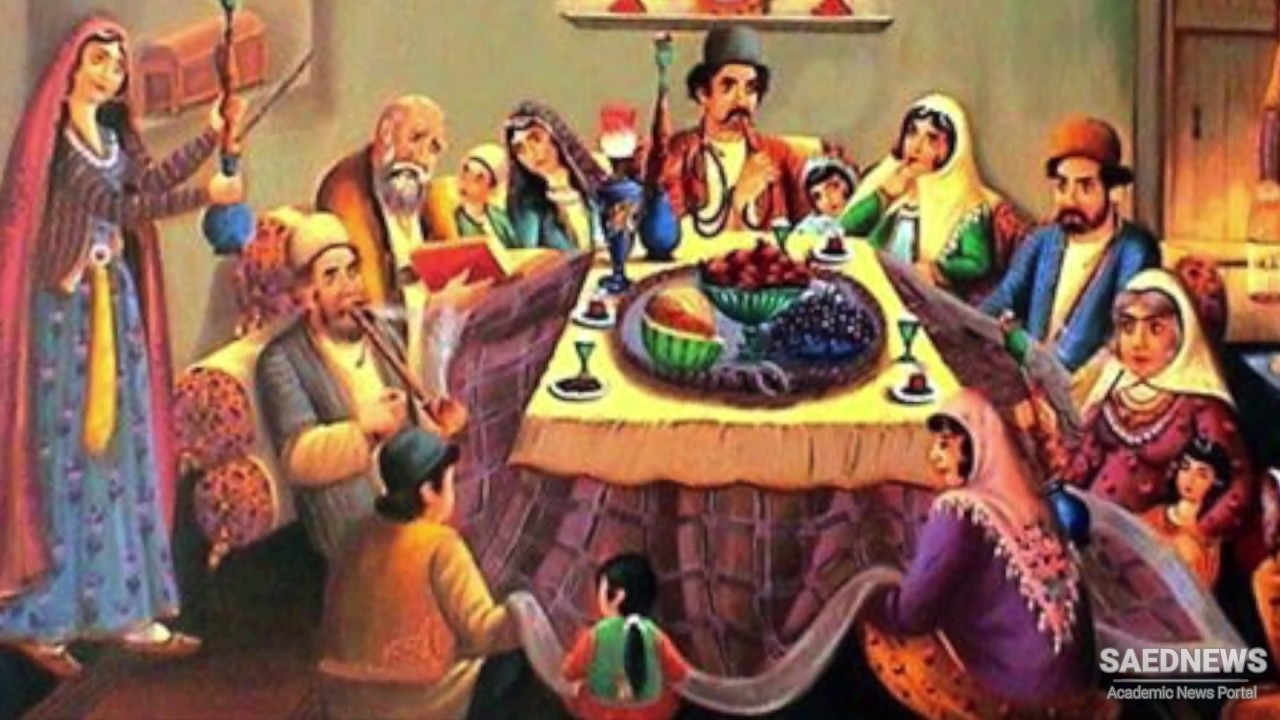The other notable day in the Iranian calendar is Shab-e Yalda, the night of the winter solstice and the longest night of the year, usually falling on December 20 or 21. Friends and family gather in one house and while away the long night telling stories and jokes, reading Hafez’s auguries to each other, and munching nuts, dried fruit, candies, and fresh melon or watermelon as a reminder of the long summer days. Yalda, like Chaharshanbehsuri , is not an offi cial holiday but is nonetheless observed quite widely among Iranians. In Zoroastrian tradition, the winter solstice, with the longest night of the year, was a particularly inauspicious day, and the practices of Yaldâ refl ect customs intended to protect people from any evil occurrence at that time. One should stay up most or all of the night and keep a fire burning in the fireplace if possible. Having small parties or social gatherings to eat, talk, and tell stories (or dance and listen to music if one is not of a conservative bent) is a common way of passing the time. Traditional practice was also to eat the last available fresh (as opposed to dried) fruits of the year for Yaldâ; today, fresh fruit is of course available throughout the year but is still used for Yaldâ. Grocers will often have spectacular displays of a variety of fresh fruits for people to buy for this occasion, especially watermelon, which has become associated with this night. Consuming nuts, exchanging jokes, and playing games are common activities of the night (Source: Iran's Customs).



 Imamate Culture in Modern Persia: Shia Islam and Cultural Developments in Iran
Imamate Culture in Modern Persia: Shia Islam and Cultural Developments in Iran














































